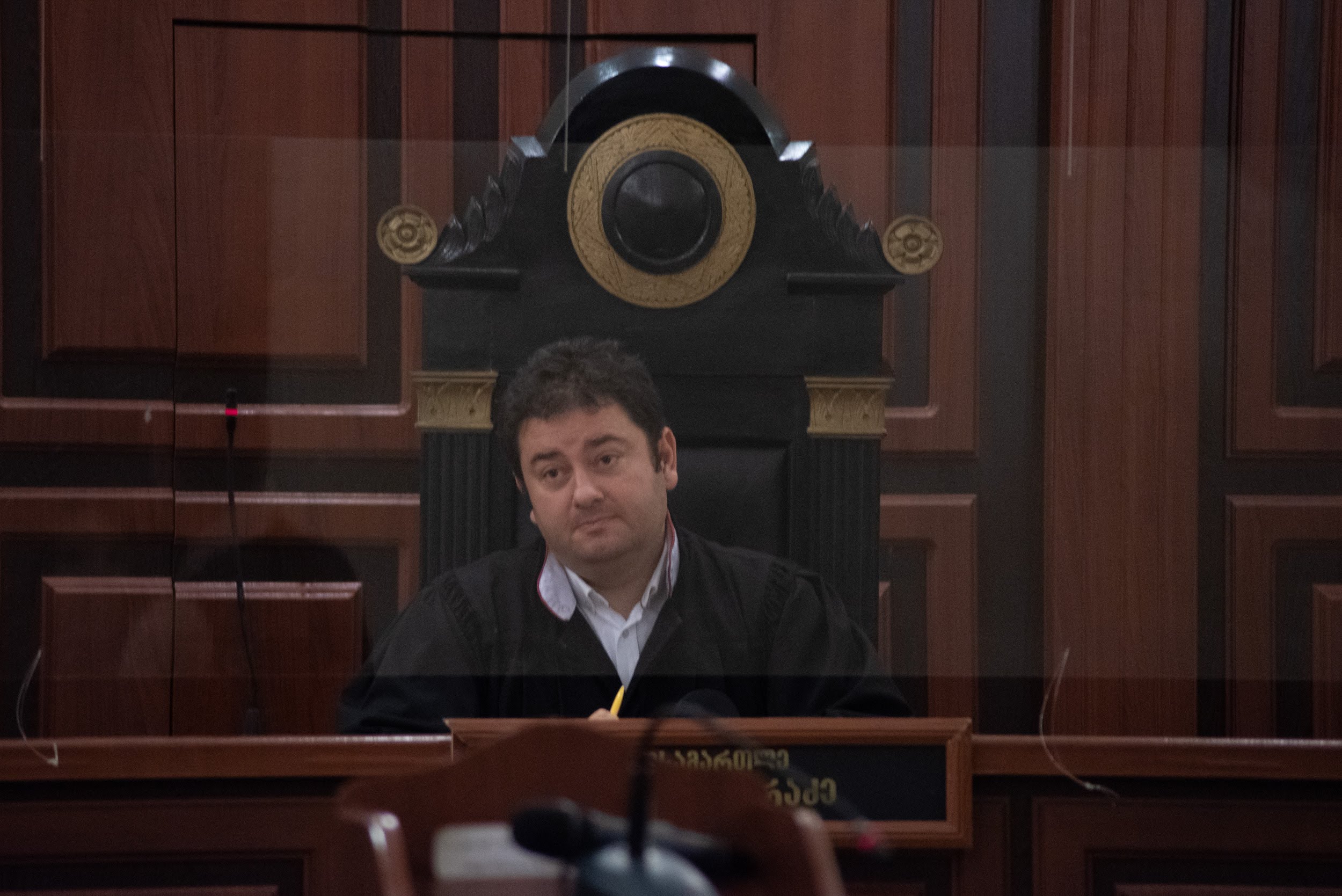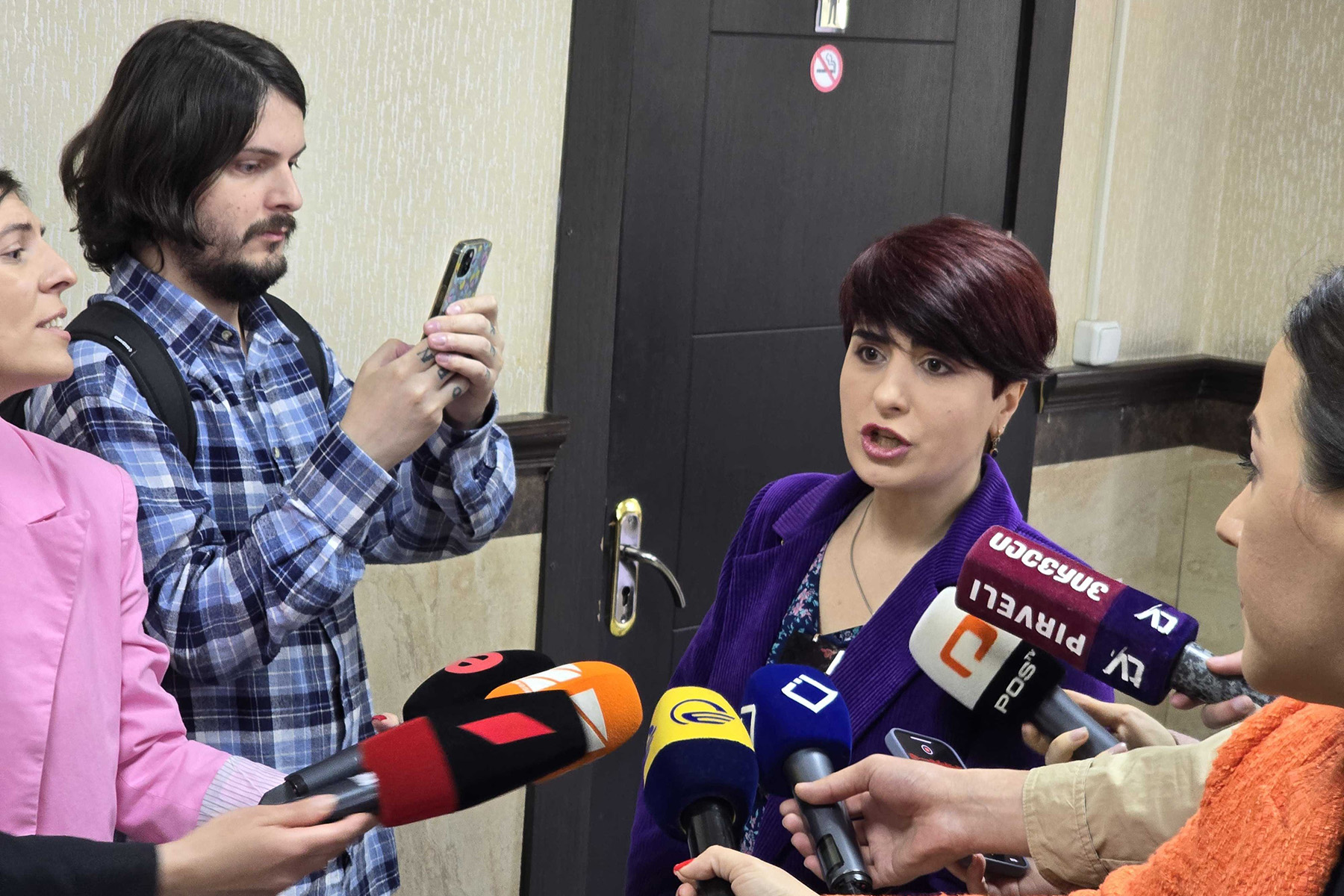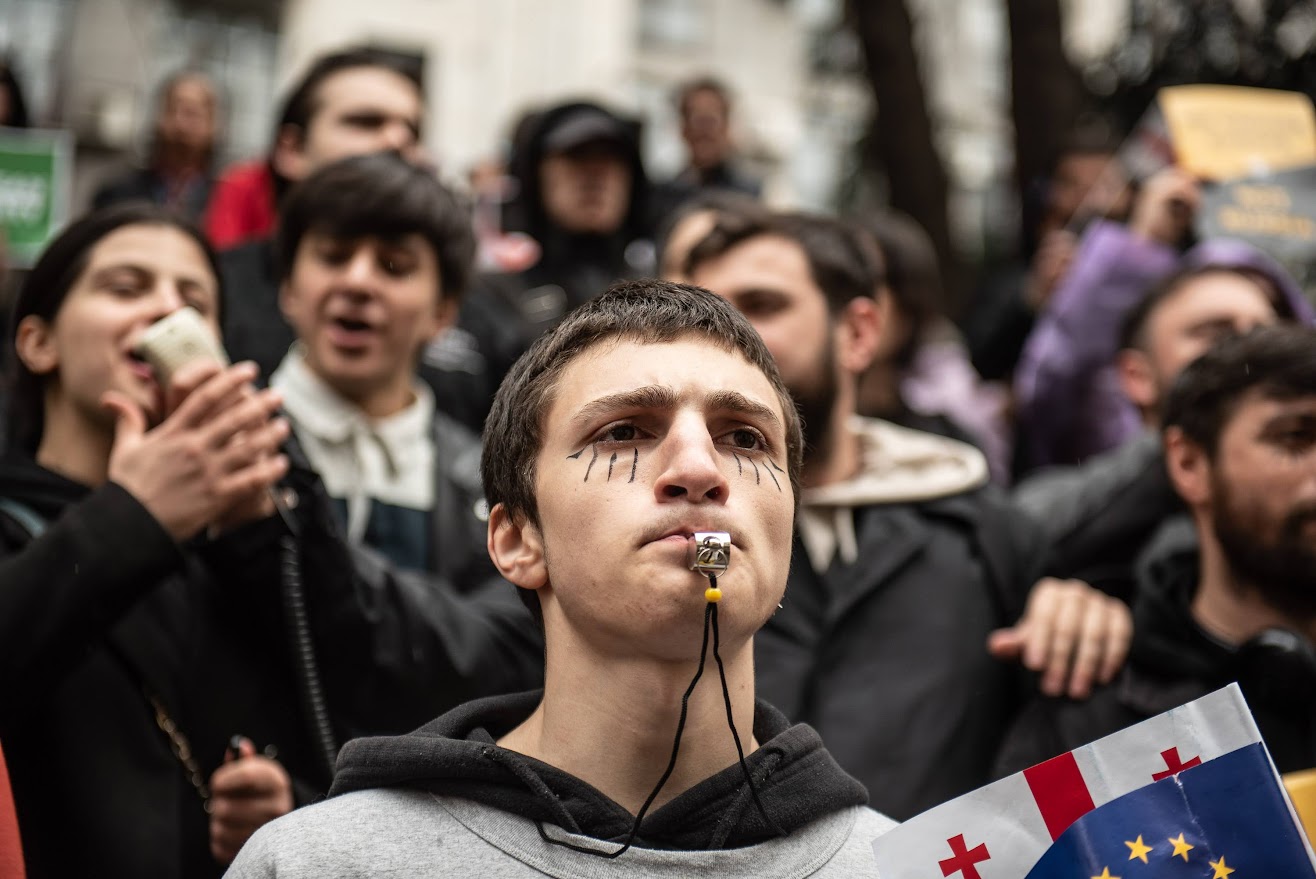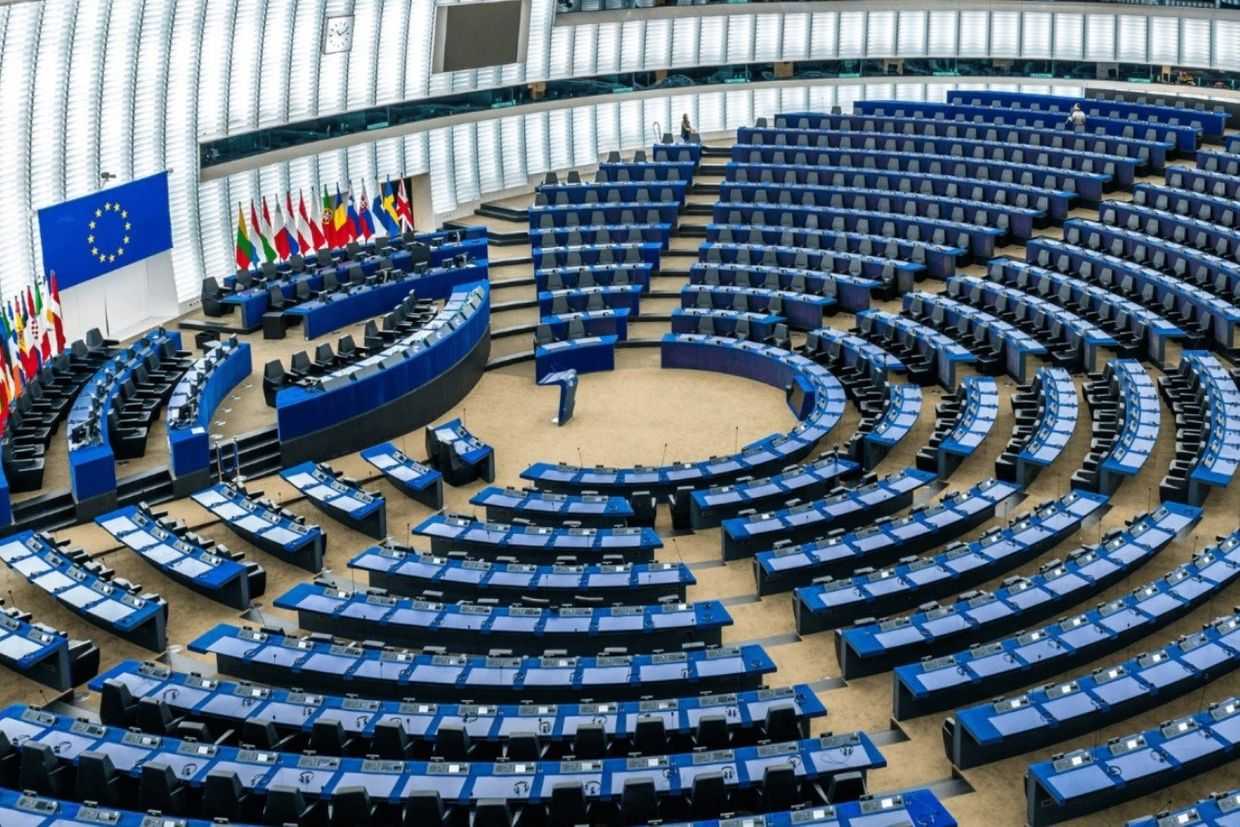
Tbilisi City Court has convicted Lazare Grigoriadis of attacking a police officer and arson during the March 2023 protests against Georgia’s draft foreign agent law, sentencing him to nine years in prison.
Lazare Grigoriadis, 22, was the first person to be detained for their participation in the foreign agent law protests in March 2023, with ruling Georgian Dream party figures and pro-government media commenting on his appearance and ‘orientation’ in the months that followed his arrest. His sentencing arrives as the ruling party revives the controversial foreign agent law, to widespread local and international criticism.
Grigoriadis was convicted on two charges: harming a police officer’s health in connection with their official activities and destroying someone else’s property by setting fire.
A number of human rights campaigners in Georgia have cast doubt that Grigoriadis would face a fair trial, claiming the evidence against him was flawed and citing widespread beliefs that the judiciary is not independent from the government.

Following the verdict, Grigoriadis’ lawyer, Lika Bitadze said that ‘everything happened exactly as we said and as the defence assumed’.
‘The court made a completely unfair, unjustified and shameful decision’.
She added that the judge had not been presented any direct evidence against Grigoriadis, and that they had already prepared a statement addressing President Salome Zourabichvili to request a pardon.
‘May it be on his [the judge’s] conscience what he has done’ Grigoriadis’s mother, Tamta Kalandadze said outside the courtroom. ‘And may all the “good deeds” that this judge has done come back to bite him’, she added.

The case against Grigoriadis
Throughout the year, while the legal proceedings of Lazare Grigoriadis were ongoing, human rights defenders pointed out that the process was being carried out with violations and deliberately prolonged.
On Monday, just days before the verdict, the Social Justice Centre (SJC), a local rights group, published a report detailing flaws in the case and violations by the prosecutor.
They said witnesses who identified Grigoriadis had been presented photographs of three people with vastly different physical characteristics from Grigoriadis, which was a clear violation.
They added that the police officers who had first identified Grigoriadis as the perpetrator had described him as having ‘large eyebrows’ and ‘dark eyes’, but that none of them had mentioned Grigoriadis’ distinctive tattoos around his eyes.

They also said there had been key contradictions between the key witnesses’ initial statements and their court testimony.
According to them, the police officer whose car was burnt during the protests said during his initial interview that he had not seen how his car was damaged. When questioned in court, he said he had seen protesters damaging it.
They cited other contradictions in witness testimony, with one officer who identified Grigoriadis claiming he did not take off his hood and cap, which would have obscured his distinctly blond hair, while another officer claimed he did.
The SJC also criticised the authorities and pro-government media for running a year-long campaign of ‘discrediting and propaganda’ against Grigoriadis.
‘The purpose of the propaganda campaign was to create a negative public impression of Lazare and manipulate public opinion’, the report read.
They added that this campaign demonstrated the government’s ‘political interest’ in the case.
The Georgian Government has long been accused by local rights groups as well as Western countries of controlling a ‘clan’ within the judiciary that delivers verdicts for politically sensitive cases.
In May 2023, Nazi Janezashvili, a former non-judge member of the Supreme Council of Justice, the body that oversees the judiciary, told Publika that politically sensitive cases were not assigned to specific judges by chance.
She pointed out that the judge in Grigoriadis’ case, Zviad Sharadze, had previously decided on the controversial ‘cartographers case’.
‘It’s clear and obvious that there is an expectation regarding this judge. His background is problematic’, Janezashvili said.







